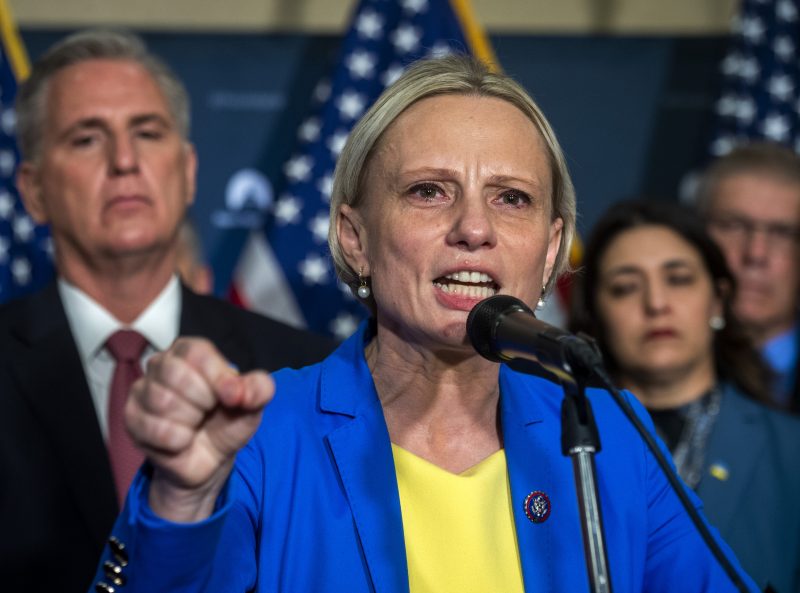In a move that has sparked controversy and raised questions about loyalty and allegiance, Ukrainian-born Indiana State Senator Victoria Spartz is now facing criticism for her recent votes on Ukraine-related issues.
Spartz, who immigrated to the United States from Ukraine in the early 2000s, has come under fire for her voting record regarding legislation that impacts her home country. The senator’s decision to vote against a resolution showing support for Ukraine in its ongoing conflict with Russia has drawn sharp criticism from Ukrainian-Americans and foreign policy experts alike. Many have accused Spartz of aligning herself with the interests of the Russian government, rather than advocating for the interests of her country of birth.
This scrutiny of Spartz’s actions has only intensified as she faces a tough primary fight. Her opponent, a fellow Republican, has seized upon the controversy surrounding her Ukraine votes as a central issue in the campaign. The primary race has become a battleground for competing narratives about patriotism, loyalty, and the proper role of elected officials in shaping foreign policy.
As the primary election looms, Spartz finds herself in a precarious position. Her voting record and the criticism it has provoked have put a spotlight on her background as an immigrant from a country mired in geopolitical conflict. The senator’s responses to these attacks will be closely scrutinized by voters, who are eager to know where her loyalties truly lie.
In the midst of this political firestorm, Spartz faces the challenge of defending her votes and explaining her positions on Ukraine. Her ability to navigate these treacherous waters may well determine the outcome of the primary election and shape the future of her political career. The controversy surrounding her Ukraine votes serves as a potent reminder of the complex intersections of identity, politics, and patriotism in today’s increasingly globalized world.
In the final days leading up to the primary, all eyes are on Victoria Spartz as she seeks to overcome the criticism and secure her place as the Republican nominee. The outcome of the election will not only have implications for her political future but also for the broader debate over the role of immigrant lawmakers in shaping US foreign policy. As the campaign enters its final stretch, it remains to be seen whether Spartz’s Ukrainian background will prove to be a liability or an asset in her bid for re-election.


























